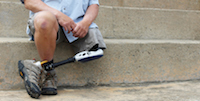LAWSUITS NEWS & LEGAL INFORMATION
Invokana Linked with Cardiovascular Injuries and Kidney Failure
Were you looking for FDA Warns of Ketoacidosis Linked to SGLT2 inhibitors Canagliflozin, Dapagliflozin, and Empagliflozin or SGLT2 Inhibitor Forxiga Safety Review Launched lawsuits?
By Heidi Turner
Invokana lawsuits have been filed against Janssen Pharmaceuticals alleging Invokana side effects include an increased risk of kidney problems and cardiovascular problems. Additionally, the US Food and Drug Administration (FDA) and the European Medicines Agency (EMA) have issued warnings about kidney problems and diabetic ketoacidosis—both of which are serious conditions—potentially linked to Invokana use.
Invokana (canagliflozin), is a type 2 diabetes medication and is in a class of drugs known as SGLT2 inhibitors. It works by causing the kidneys to remove sugar from the blood via urine and was first approved by the US Food and Drug Administration (FDA) in 2013. Some diabetes patients may be prescribed Invokamet, which is a diabetes medication combining Invokana with metformin hydrochloride (Glucophage).
Other drugs in the SGLT2 class include dapagliflozin (Forxiga) and empagliflozin (Jardiance), Xigduo XR (dapagliflozin and metformin extended-release) and Glyxambi (empagliflozin and linagliptin).
Invokana lawsuits have now been filed against Janssen Pharmaceuticals, a subsidiary of Johnson & Johnson, alleging patients suffered serious side effects as a result of the use of Invokana. One such lawsuit (Maddox v. Janssen Pharmaceuticals, et al, case number; 2:16-cv-01189) alleges patients who were prescribed Invokana "have suffered and may continue to suffer severe and permanent personal injuries, including diabetic ketoacidosis, stroke, heart attack, and severe kidney damage."
Maddox's lawsuit alleges the defendants knew or should have known about the risks but failed to adequately warn patients, putting them at risk of diabetic ketoacidosis, cardiovascular problems and kidney damage. Specifically, Maddox argues he developed ketoacidosis and kidney damage less than a year after starting Invokana treatment.
In May 2015, the FDA warned that Invokana was linked to ketoacidosis, a serious condition in which the body produces high levels of ketones. Patients were warned to watch for signs of ketoacidosis, including difficulty breathing, nausea, vomiting, abdominal pain, confusion and unusual fatigue or sleepiness and seek medical attention if any signs of ketoacidosis occur.
According to the Mayo Clinic, DKA symptoms may also include excessive thirst, frequent urination and even fruity-scented breath. Diabetes patients can typically recognize signs of diabetic ketoacidosis via home blood and urine tests that indicate high blood sugar levels (hyperglycemia) and/or high ketone levels.
The FDA's warning was based on its Adverse Event Reporting System (FAERS), which contained 20 cases of acidosis, ketoacidosis or ketosis in patients treated with SGLT2 inhibitors between March 2013 and June 2014. FDA notes that more Invokana FAERS reports have been received since June 2014. All patients reportedly required hospitalization.
Diabetic ketoacidosis is a serious condition that occurs when insulin levels are too low resulting in excessively high blood sugar levels. The body then burns fat for fuel, resulting in ketones building up, which upsets the blood's chemical balance. A person experiencing DKA may require emergency care and hospitalization to treat the ketoacidosis.
In March 2015, the FDA requested an update to Invokana's label to warn about the risk of genital mycotic infections (yeast infections) in both males and females. A study presented at the American Diabetes Association (ADA) 2013 Scientific Sessions suggested 10 percent of women taking Invokana experienced a yeast infection compared with three percent of women who took a placebo.
Invokana has reportedly been linked to an increased risk of kidney problems. In 2015, the Institute for Safe Medication Practices warned in its quarterly report that it had identified 457 serious adverse event reports, including kidney failure or impairment, dehydration and fluid imbalances, kidney stones, urinary tract infections and abnormal weight loss.
On February 12, 2016, the European Medicines Agency (EMA) issued recommendations concerning SGLT2 Inhibitors. The agency warned that patients taking such medications should contact healthcare professionals immediately and treatment should be stopped if diabetic ketoacidosis is confirmed.
In addition to Invokana and Invokamet, the FDA has also issued a warning about SGLT2 inhibitors potentially leading to DKA. The FDA is investigating type 2 diabetes medications including dapagliflozin (Forxiga) and empagliflozin (Jardiance). Additionally, two other SGLT2 inhibitors, Xigduo XR (dapagliflozin and metformin extended-release) and Glyxambi (empagliflozin and linagliptin) are also being investigated.
Last updated on
En Español INVOKANA
FREE INVOKANA LAWSUIT EVALUATION
Send your Invokana claim to a lawyer who will review your claim at NO COST or obligation.
GET LEGAL HELP NOW
GET LEGAL HELP NOW
Invokana
Other drugs in the SGLT2 class include dapagliflozin (Forxiga) and empagliflozin (Jardiance), Xigduo XR (dapagliflozin and metformin extended-release) and Glyxambi (empagliflozin and linagliptin).
Invokana Lawsuits
Maddox's lawsuit alleges the defendants knew or should have known about the risks but failed to adequately warn patients, putting them at risk of diabetic ketoacidosis, cardiovascular problems and kidney damage. Specifically, Maddox argues he developed ketoacidosis and kidney damage less than a year after starting Invokana treatment.
Invokana Ketoacidosis
According to the Mayo Clinic, DKA symptoms may also include excessive thirst, frequent urination and even fruity-scented breath. Diabetes patients can typically recognize signs of diabetic ketoacidosis via home blood and urine tests that indicate high blood sugar levels (hyperglycemia) and/or high ketone levels.
The FDA's warning was based on its Adverse Event Reporting System (FAERS), which contained 20 cases of acidosis, ketoacidosis or ketosis in patients treated with SGLT2 inhibitors between March 2013 and June 2014. FDA notes that more Invokana FAERS reports have been received since June 2014. All patients reportedly required hospitalization.
Diabetic ketoacidosis is a serious condition that occurs when insulin levels are too low resulting in excessively high blood sugar levels. The body then burns fat for fuel, resulting in ketones building up, which upsets the blood's chemical balance. A person experiencing DKA may require emergency care and hospitalization to treat the ketoacidosis.
Invokana Adverse Reactions
Invokana has reportedly been linked to an increased risk of kidney problems. In 2015, the Institute for Safe Medication Practices warned in its quarterly report that it had identified 457 serious adverse event reports, including kidney failure or impairment, dehydration and fluid imbalances, kidney stones, urinary tract infections and abnormal weight loss.
On February 12, 2016, the European Medicines Agency (EMA) issued recommendations concerning SGLT2 Inhibitors. The agency warned that patients taking such medications should contact healthcare professionals immediately and treatment should be stopped if diabetic ketoacidosis is confirmed.
SGLT2 Inhibitor FDA Warning
Invokana Lawsuits
Attorneys are investigating possible Invokana lawsuits. Patients who have suffered adverse events after using Invokana—or people whose loved ones died after suffering an adverse event—may be eligible to file a lawsuit. If you or a loved one has suffered damages or injuries due to Invokana, please click the link below and your complaint will be sent to a Drug and Medical Device lawyer who will evaluate your claim at no cost or obligation.Last updated on
INVOKANA LEGAL ARTICLES AND INTERVIEWS
Plaintiff Blames Loss of his Lower Leg to Invokana Use

New Invokana Research (Funded by Manufacturer) Disputes Earlier Studies Showing Amputation Risk

Janumet Patient Felled by Cancer of the Pancreas in 2012


March 21, 2018
Trenton, NJ: While a plaintiff having filed a recent Invokana lawsuit makes assertions pertaining to Invokana linked with cardiovascular injuries and kidney failure, it was the amputation of his right leg below the knee less than a year after starting on Invokana that ultimately prompted the plaintiff to move forward with his Invokana side effects lawsuit. READ MORE
New Invokana Research (Funded by Manufacturer) Disputes Earlier Studies Showing Amputation Risk

October 2, 2017
Washington, DC: Despite exhaustive studies that found an increased risk of amputation among Invokana diabetes patients, Janssen Pharmaceuticals has published its own version of research. READ MORE
Janumet Patient Felled by Cancer of the Pancreas in 2012

August 22, 2017
Los Angeles, CA: When Janumet (sitagliptin and metformin combined) was approved by the US Food and Drug Administration (FDA) in 2007, the type 2 diabetes drug was within five years of achieving sales of $1.7 Billion. That year, when Janumet hit blockbuster status by 2012, the parent drug of Janumet – Januvia – earned $4 Billion for manufacturer Merck & Co. Januvia has been associated with Januvia side effects, and has resulted in Januvia cancer lawsuits. READ MORE
READ MORE Diabetes Drugs Settlements and Legal News
READ MORE Defective Products Settlements and Legal News
READ MORE Drugs/Medical Settlements and Legal News
READ MORE Personal Injury Settlements and Legal News
READ MORE Defective Products Settlements and Legal News
READ MORE Drugs/Medical Settlements and Legal News
READ MORE Personal Injury Settlements and Legal News

READER COMMENTS
P minger
on
Had not had issue prior to starting Invokana w medfomin. Any advice? Or news?
henrymiller
on
DON JOHNSON
on